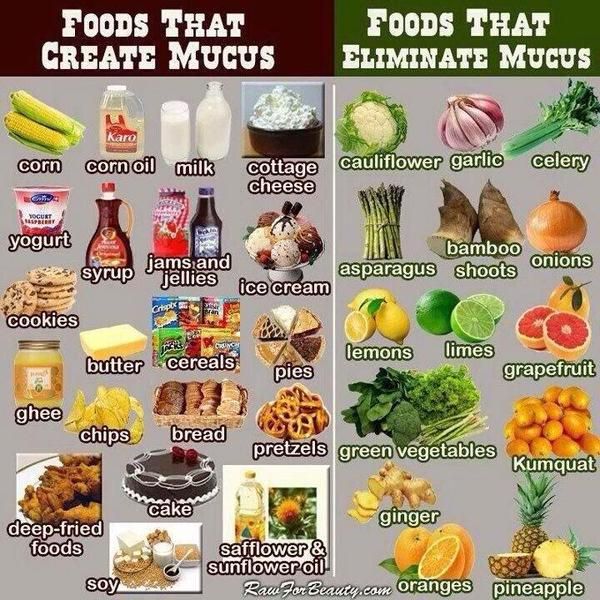
According to research, exercising can help reduce or prevent many chronic diseases. People who exercise moderately are less likely to get certain types of cancer. Exercise regularly is associated with lower rates of diabetes and heart disease. These conditions are more common in people who exercise regularly, and this can be prevented.
Exercising has numerous benefits. It has been shown to increase memory and concentration and reduce the risk for depression and sleeplessness. Additionally, physical activity increases WBCs. This makes it an excellent antiinflammatory agent. This could help with a variety of ailments. There are many other benefits to exercise. This makes it a more popular option for treating chronic diseases.

Transdiagnostic benefits of exercise can be different depending on what symptom you are experiencing. Exercise can improve your sleep quality and mood as well as relieve stress and anxiety. Exercise is also a great way reduce your risk of stroke, diabetes, heart disease and other illnesses. Not only can you prevent these diseases but exercise is also beneficial for maintaining a healthy weight, and overall good health.
The Mayo Clinic estimates that 29 million Americans have diabetes. Many of these patients don't know they have diabetes and are often unaware that their condition exists. Study of heart attack victims showed a 20-25% reduction in mortality relative to those who were not part of the study. Others showed even greater reductions. Studies from the past were reviewed in large numbers and concluded that exercise rehabilitation made it more likely for people to survive heart attacks.
Regular exercise can have many health benefits. It can increase quality of your life and lower the risk of various diseases such as type 2 diabetes and cardiovascular disease. It can also lower the likelihood of other health problems such as depression, anxiety, dementia, or dementia. These are just a few of the many benefits of exercise. It is vital to exercise and stay active to avoid chronic diseases. There are numerous other advantages of exercising.

Regular physical activity has been associated with a lower risk of many chronic illnesses. For instance, it can reduce the risk of high blood pressure and other complications. It can also help improve your overall health. A study of heart failure has shown that a high physical-activity level can prevent the formation of a stroke. Your risk of developing cardiovascular diseases is reduced when you get more active. If you're overweight or obese, exercising can help to lose weight.
FAQ
What diet supplement is best to lose weight?
Weight loss requires diet and exercise. Some people find that supplements can help them along the journey.
Many studies show that omega-3s may help you lose weight. Omega-3 fatty acid is an essential fat that is important for brain function as well as cell membrane integrity. They can be found as a part of seafood such as tuna, salmon, shrimp, and cod live oil.
Green tea is being studied for its potential benefits in weight loss. Green tea has catechins, which are antioxidants that can help increase metabolic rate and encourage weight reduction.
Is it true that overeating protein causes kidney stones?
Protein helps maintain healthy bone and tissue. Over-consuming protein can result in calcium being excreted through the kidneys. This can lead kidney stones.
Not everyone who eats more than 2g of protein per kilogram (2.2 lbs) of bodyweight will get kidney stones. It is possible to eat high levels of protein without developing kidney stones.
You can prevent kidney stones by watching your sodium consumption. Sodium helps regulate water balance in the kidneys. Too much sodium can lead to kidney stones.
If you have kidney stones, you can reduce your intake of protein. Protein accounts for about half the daily caloric requirement of most adults. You'll lose weight if you reduce your intake of protein.
If you do decide to eat more protein, don't go overboard. Aim for less than 20% of total calories from protein.
Do I have the obligation to exercise every day or just on occasion?
No! You should do at least 30 mins of moderate-intensity activity 5 days per week. It means you need to exercise hard enough or walk fast enough that you are slightly out-of- breath.
What is your favorite workout to build muscle mass?
Two main types of exercises are required for building muscle mass. These are called compound movements and isolation. While isolation exercises focus on specific muscles, compound moves target multiple muscle groups simultaneously.
You can improve your workouts by choosing exercises that challenge all major muscle groups. This ensures that your sessions are challenging and you are always working hard.
MyFitnessPal can help you keep track of your activity. It allows you log everything, including calories burned and weight lifted. You can also create customized meal plans based upon your goals.
Statistics
- According to the American Heart Association, blood pressure should be checked at least once every two years, beginning at age 20. (my.clevelandclinic.org)
- Get free shipping and 25% off today. (healthline.com)
- An estimated calorie range for moderately active adult males falls between 2,200 to 2,800 calories per day, depending on age. (eatright.org)
- Are You One of the 20% of Guys (mh.co.za)
- The PRS enabled risk stratification for overall prostate cancer and lethal disease with a four-fold difference between men in the highest and lowest quartiles (HR, 4.32; 95% confidence interval [CI], 3.16-5.89). (pubmed.ncbi.nlm.nih.gov)
External Links
How To
What nutrients is a man supposed to consume daily?
Healthy growth and development of men requires healthy nutrition. Vitamins, minerals, vitamins, nutrients, carbohydrates, fats and fiber are all essential for the body.
The male body also requires specific nutrients at different times throughout the day. For example, when you sleep, your body uses energy from food to make hormones, antibodies, and enzymes. Protein is needed to build muscles and repair tissue damaged when you wake up.
Your body burns fat at night and stores it as energy as glycogen. Your body has less energy but still requires enough nutrients during this time. You might have an occasional snack during the night if your stomach is feeling hungry.
To fuel your muscles while you train, you will need sufficient carbs as well as protein. If you train hard, you may experience muscle soreness after exercising.
To avoid this, you need to eat carbs and proteins within two hours of training. To get energy from glucose, your body will start to degrade stored glycogen.
Also, protein must be consumed immediately after your workouts. This prevents the breakdown of muscle tissue that occurs while you sleep.
Your body produces lactic acid during high levels of physical activity. The body produces lactic acid when there is too much activity. This can cause fatigue. Avoid this by eating foods rich in carbohydrates such as fruits or vegetables.
Carbohydrates can give your body the energy it requires to recover from intense exercise.
You may also want to include lean meats and fish, as well as yogurt, cheese, yogurt, beans and nuts in your diet.
All of these foods have high-quality protein. Protein promotes muscle growth and repairs damaged tissues. It also provides the amino acids your body needs to produce sex hormones and testosterone.
To maintain healthy skin, hair, and joints, you also need sufficient dietary fats. Healthy men should consume between 20% to 35% of their daily caloric intake from fat.
Fat helps keep your heart strong and protects against cancer. It keeps your brain healthy and functioning well.
You can get most of the fat you need from vegetable oils like olive oil, sunflower oil, corn oil, soybean oil, peanut oil, and safflower oil.
These oils are high in monounsaturated fatty acids (MUFAs). MUFAs help lower cholesterol and reduce inflammation. They protect cells against damage from free radicals.
Saturated fats (SFAs) are found mostly in animal products like meat, dairy products, and butter. SFAs can raise LDL ("bad") cholesterol levels and increase triglycerides. They can also increase weight and reduce belly fat.
Polyunsaturated oil (PUFAs), which are plant-based, can be found in vegetable oils, nuts seeds, grains, and other plant-based products. PUFAs reduce inflammation and improve cardiovascular function. They are also good for controlling blood sugar and cholesterol.
Erectile dysfunction is common in men with low HDL ("good") cholesterol. A high intake of saturated fats leads to higher levels of bad cholesterol.
Red meat and pork are a common source of prostate problems in men who eat a lot. High temperatures can cause nitrates to become nitrosamines. These compounds can cause cancer.
Many processed meats are high in nitrites, and other dangerous chemicals. Avoid them.
The American Heart Association suggests that no more than two servings per week of red meat should be consumed. Instead, choose poultry or fish, beans, tofu and whole grain bread.